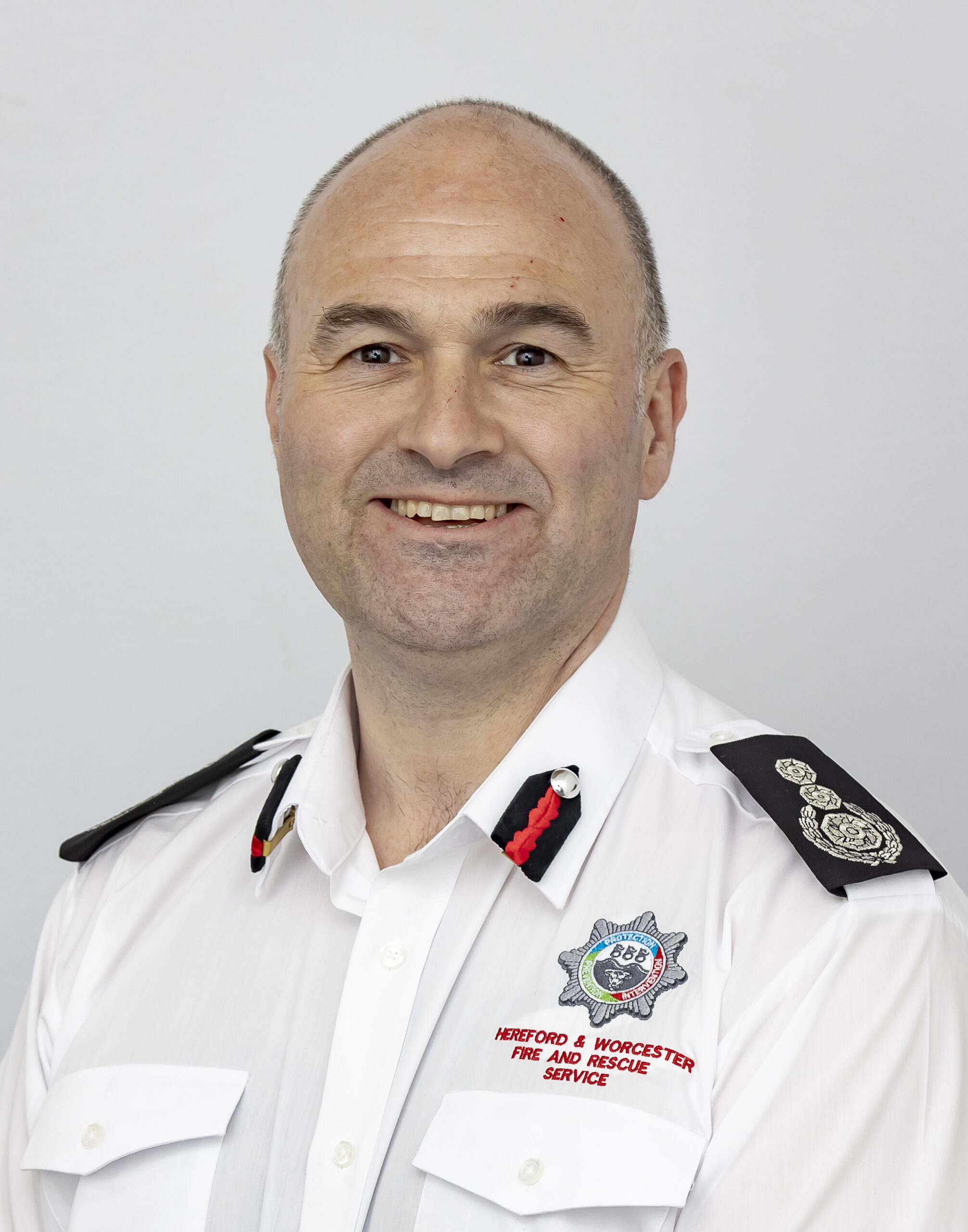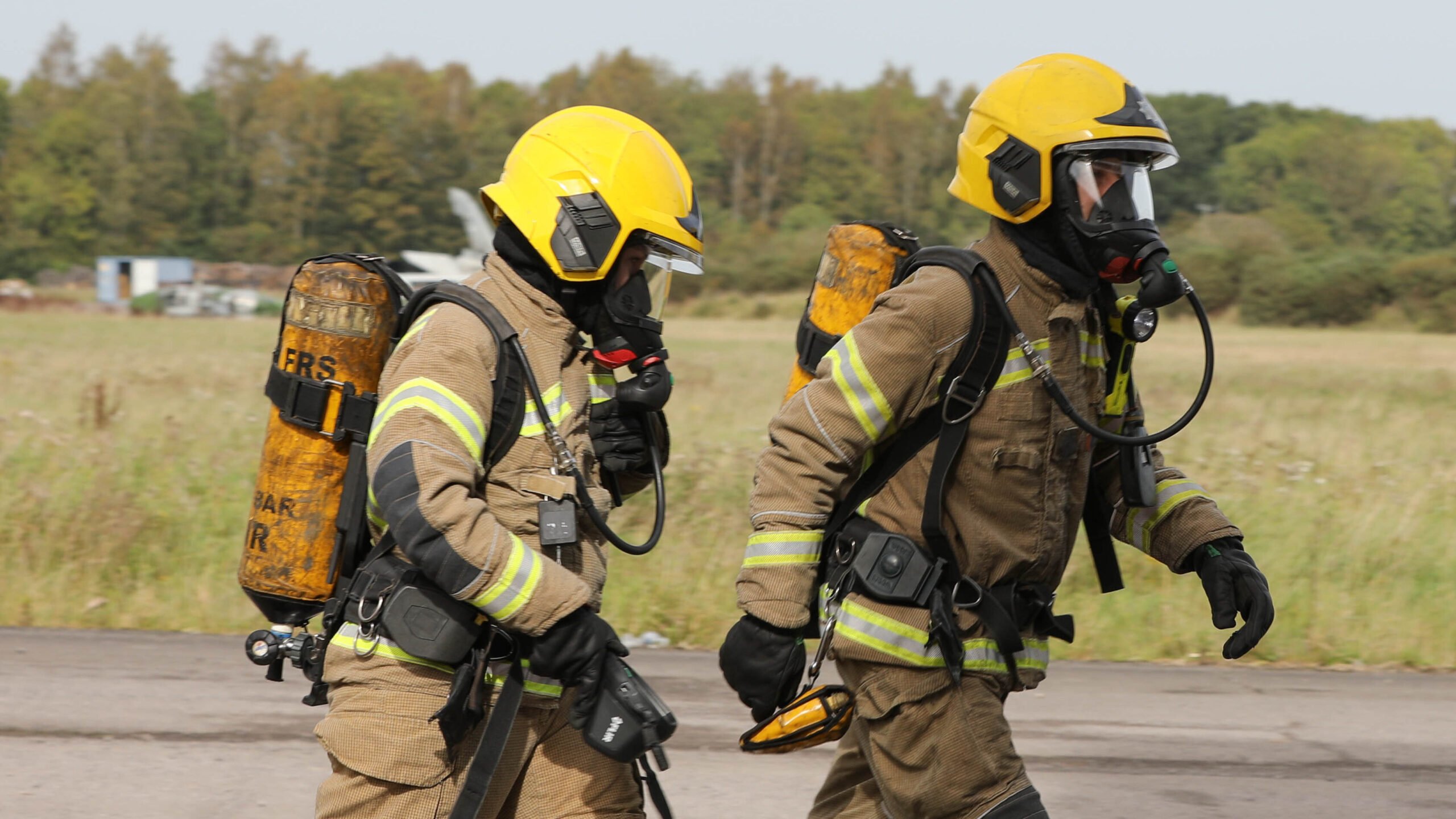Welcome from the Chief Fire Officer, Jonathon Pryce
On behalf of Hereford & Worcester Fire and Rescue Service, I would like to welcome you to our website and I hope you will find everything you need here. If not, please do not hesitate to contact us and we will be pleased to help in any way we can.
You won’t be surprised that our primary aim is to make the counties of Herefordshire and Worcestershire safer from fire and other hazards, providing residents and visitors with high-quality Response, Protection and Prevention Fire and Rescue related services.
Through our prevention work, and with our partners, we have seen around a third fewer incidents than we did 15 years ago, including a 50 per cent fall in the number of fires we attend. This means we are all safer from the devastating consequences of fire than we were in the past.
An important part of our aim to make communities safer is to communicate advice to the public via the Service’s website. You can find information on Home Fire Safety and Business Fire Safety by exploring the site.


A modern fire service
In nearly 30 years working for fire and rescue services, I have seen many changes to the risk we all face, what we do as a Fire Service and how we deliver our services. While our core role of attending fires of all descriptions and Road Traffic Collisions remains the same, we are no longer purely a Fire and Rescue Service. We also deal with flooding, water rescues, rescues from height and depth, and chemical incidents, gaining entry for Ambulance colleagues and searching for missing vulnerable people with the Police, as well as providing the latest drone technology 24/7 for other Police and Fire colleagues, to name but a few of the ways we help our communities.
We are part of the national response to significant incidents caused by terrorist events or adverse weather and also contribute to the entire country’s safety by hosting a variety of nationally provided specialist vehicles available to be deployed across the UK.
Our other core roles are Prevention and Protection, where we work with you to prevent fires, Road Traffic Collisions and other emergencies from causing harm (Prevention). We do this by targeting those most at risk in our society and working with partners. Alongside this we support businesses and other public buildings in achieving Fire Safety compliance (Protection).
Your firefighters on our 25 fire stations spread across both counties now receive more training than ever before and are highly skilled in many different specialisms; they are the backbone of this Service and I’m proud to be able to lead such an excellent organisation.
On this website you can find pages for all our areas of work, including for every one of our stations and vehicles, with pages of advice and useful links for a host of safety issues, including in your home, for businesses, road safety and how to prepare for an emergency such as flooding.
I hope you find the site informative and useful; we are always looking to improve, so please feel free to contact us at info@hwfire.org.uk if you have any comments or questions about the new website or any other area of our business.
Our Service Structure
-
Fire and Rescue Authority
-
-
Treasurer
-
CFO’s Exec. Assistant (SLB Comms) & PAs
Chief Fire Officer / Chief Executive
-
Monitoring Officer
-
Assistant Director – Legal
-
Committee & Member Services
-
Information Governance
-
Solicitor
-
-
-
Deputy Chief Fire Officer
Director of Response-
Area Commander Response
-
3 x District Command
-
National Resilience
-
ProjectsFire ControlOn-CallCommand ExcellenceNOG
-
-
Assistant Chief Fire Officer
Director of Protection-
Area Commander Protection
-
Protection
-
Ops Policy & Ops Assurance
-
Fire Control
-
Health & Safety
-
Comms
-
Digital Media
-
Assistant Director Assets
-
ICT
-
Property & Environment
-
Ops Logs & Fleet
-
-
Assistant Chief Officer
Director of Prevention-
Area Commander Prevention
-
Prevention
-
HMICFRS
-
HR & Development
-
P&I Department
-
Training Centre
-
-
Director of Finance
-
Assistant Director Finance
-
Finance
-
Pensions
-
-